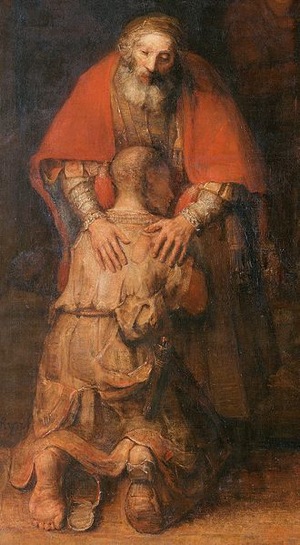
 N RECENT MONTHS, my young children have been obsessed with Legos and the movie. Like many shows or films made for children, they are designed to part a parent with their money; it’s all one big advertisement.
N RECENT MONTHS, my young children have been obsessed with Legos and the movie. Like many shows or films made for children, they are designed to part a parent with their money; it’s all one big advertisement.
And it works. So recently, I’ve been roped into helping my children put together some rather intricate Lego designs that recreate scenes from the movie. With countless tiny pieces, it even tries the patience of an adult—at least it tried mine. I found myself strangely understanding why the dad in the movie—(a.k.a., “Lord Business”) wanted to use the “Kragle” on everything to keep all the millions of pieces in place.
Five-year-old boys are very rough with their toys. Now my son is playing with a toy comprised of hundreds of tiny, delicate pieces that took a couple of hours to put together. The pieces fall off everywhere, and he demands that it be put back together every few minutes. Where’s the crazy glue? (Yes, I went there in my mind.) I now understand Lord Business. Everything must be perfectly in place!
But behind the end result is where the true lesson is hidden. Children want so badly to discover certain things for themselves. While they may need a lot of direct help with something, the thing they try to do themselves (and sometimes fail) are the lessons that take the deepest root. Additionally, it is my presence with my children that makes the most difference, not simply the end result.

 HAT TAKES LASTING ROOT in liturgy are the things we discover for ourselves, just as a child does. But this does not mean we do not teach and catechize. In fact, the importance of the liturgy demands it. But do we teach by demanding that everything be perfectly in its place, or do we lead by example and with our continued loving presence? If we do the latter, we might crack open a door for someone to discover something beautiful they did not realize before.
HAT TAKES LASTING ROOT in liturgy are the things we discover for ourselves, just as a child does. But this does not mean we do not teach and catechize. In fact, the importance of the liturgy demands it. But do we teach by demanding that everything be perfectly in its place, or do we lead by example and with our continued loving presence? If we do the latter, we might crack open a door for someone to discover something beautiful they did not realize before.
So, when there is deviation from the Roman Rite—whether knowingly or not—it is very tempting to use the “Bad Cop” approach, but it never works. In fact, it will cause damage. It must always be accompanied with the “Good”. Albeit with a bit of finesse, it is with a firm hand, at times we need to remind others of not only the particulars of the Roman Rite, but perhaps also the “why” behind it. This may not yield immediate results, but a firm (bad cop) but loving (good cop) approach will then yield lasting fruit.


 ERHAPS THE MORE SUBTLE, yet effective approach in catechesis is demonstrated by Rembrandt’s The Return of the Prodigal Son. Henri Nouwen writes of the disparity of touch in the two hands the father places upon his son. One is firm; the other, gentle.
ERHAPS THE MORE SUBTLE, yet effective approach in catechesis is demonstrated by Rembrandt’s The Return of the Prodigal Son. Henri Nouwen writes of the disparity of touch in the two hands the father places upon his son. One is firm; the other, gentle.
The father’s left hand touching the son’s shoulder is strong and muscular….That hand seems to not only touch, but, with its strength, also to hold….How different is the father’s right hand! This hand does not hold or grasp. It is refined, soft, and very tender…it wants to caress, to stroke, and to offer consolation and comfort. (Prodigal Son, pg. 111, Henri Nouwen)
The father’s approach is simultaneously firm and gentle. His hands offer direct guidance as well as safety. Ultimately, it is his presence that teaches. We are called to do the same.
